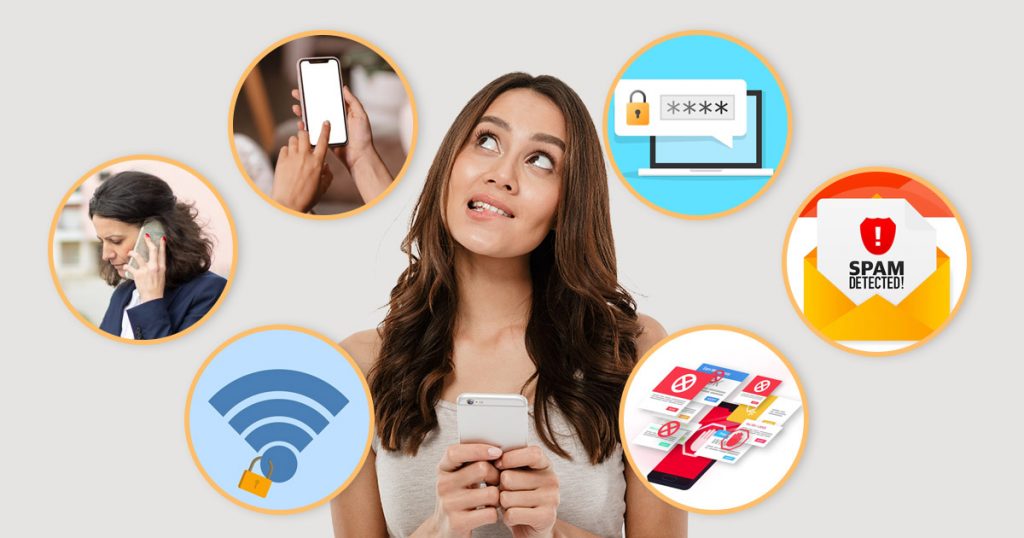Online banking is super convenient. You can check your balance, pay bills, and move money around, all from your phone or laptop. But here’s the catch: it also puts your personal info out there, which means you’ve got to be smart about staying safe.
If you’re wondering how to use online banking safely, these nine tips can help keep your account and your money secure.
1. Keep Your Devices Updated
Let’s face it, updates can be annoying. But ignoring them is like leaving your front door open. Hackers look for those tiny cracks in outdated software, and updates seal them shut before trouble sneaks in.
How does this protect you?
When your phone or computer has the latest security patches, you’re protected from viruses, malware, and other sneaky attacks. Turning on auto-updates makes this one less thing to worry about.
2. Use Strong Passwords (And Don’t Reuse Them)
Using “123456” or “password” is like handing your keys to a thief. Your bank account needs a strong lock.
How does this protect you?
A strong password makes it tough for anyone to guess their way into your account. It keeps your info safe, especially when it mixes letters, numbers, and symbols. Reusing the same password across websites? Big no-no.
3. Watch Out for Phishing Scams
When a message gives you a weird feeling, don’t brush it off. Scammers are pros at dressing up fake emails to look just like your bank’s. If something feels off, it probably is.
How does this protect you?
Phishing tricks people into handing over their login info. Learning to spot fake emails, weird links, and random pop-ups keeps you from falling into that trap.
4. Report Weird Stuff Right Away
See something off? Like a charge you don’t recognize? Don’t wait. Call your bank or report it online ASAP.
How does this protect you?
Acting fast can stop a scam before it gets worse. You can also report cybercrime to the FBI’s Internet Crime Complaint Center (IC3). It’s better to speak up than lose money.
5. Double-Check Links Before You Click
Scammers love to send fake links that look like real websites. But there’s usually something fishy, like a missing letter or weird domain name.
How does this protect you?
Hovering over a link before you click lets you see the real website. It helps you avoid being tricked into giving away info or downloading malware.
6. Don’t Overshare on Social Media
Sharing fun facts like your birthday or pet’s name might seem harmless, but hackers see clues, not memories. That info can unlock your accounts.
How does this protect you?
Hackers use your social media to guess passwords or crack security questions. Keeping your profile private and skipping the personal stuff helps you stay safe.
7. Use Secure Wi-Fi or a VPN
Free Wi-Fi at your favorite coffee spot sounds great, but it’s like leaving your door wide open for digital eavesdroppers.
How does this protect you?
Your home Wi-Fi should always be password-protected. And if you’re on public Wi-Fi, a VPN scrambles your info so others can’t see it. It’s like putting your data in a locked box.
8. Make Sure the Site is Secure
Before you shop or do any online banking, check the URL. It should start with “https” and have a padlock icon.
How does this protect you?
That little padlock means your connection is encrypted. It keeps your private info, like credit card numbers or login details, from being stolen during checkout or login.
9. Read the Privacy Policy
Yes, they’re long. And yes, they’re boring. But they tell you a lot about how a website uses your info.
How does this protect you?
If a site shares your data with third parties or has weak security, that’s a red flag. Reading the privacy policy helps you decide if the site is worth trusting at all.
Protecting Your Money Is Protecting Yourself
Online banking makes life easier, but it also means you need to stay alert. Keeping your accounts safe is more than just a tech habit. It’s part of taking care of yourself and your future.
Think of these safety steps like locking your door at night. They help you sleep better knowing your money and personal info are protected. You worked hard for what you have. Staying smart online shows you’re serious about keeping it.
At the end of the day, online banking safety is all about control. You’re the one in charge, not the scammers.
